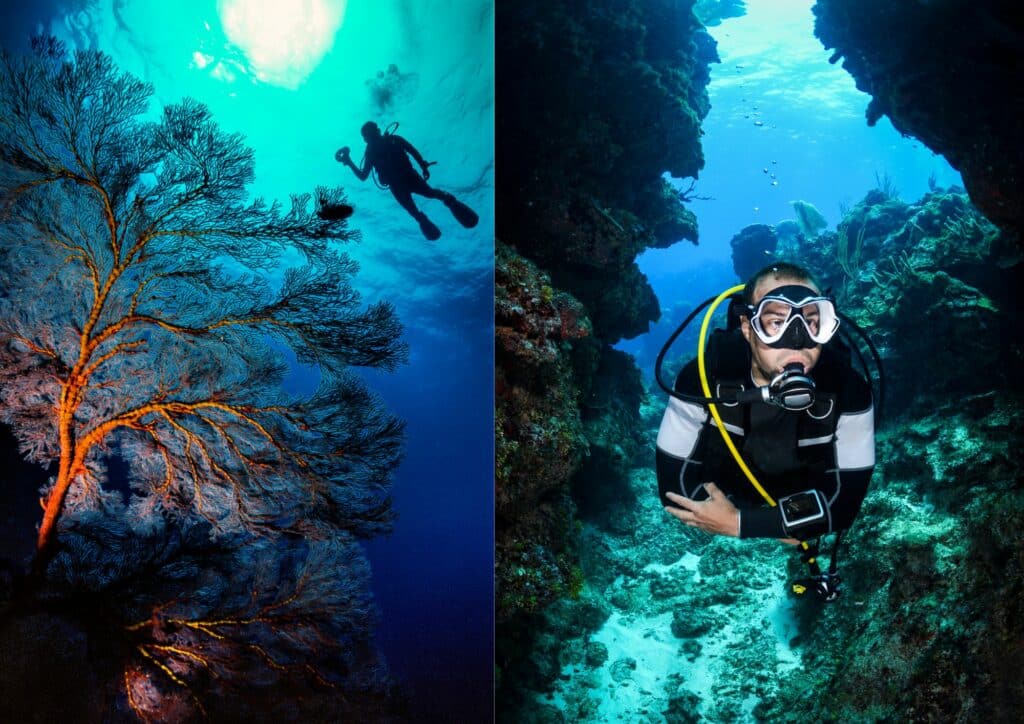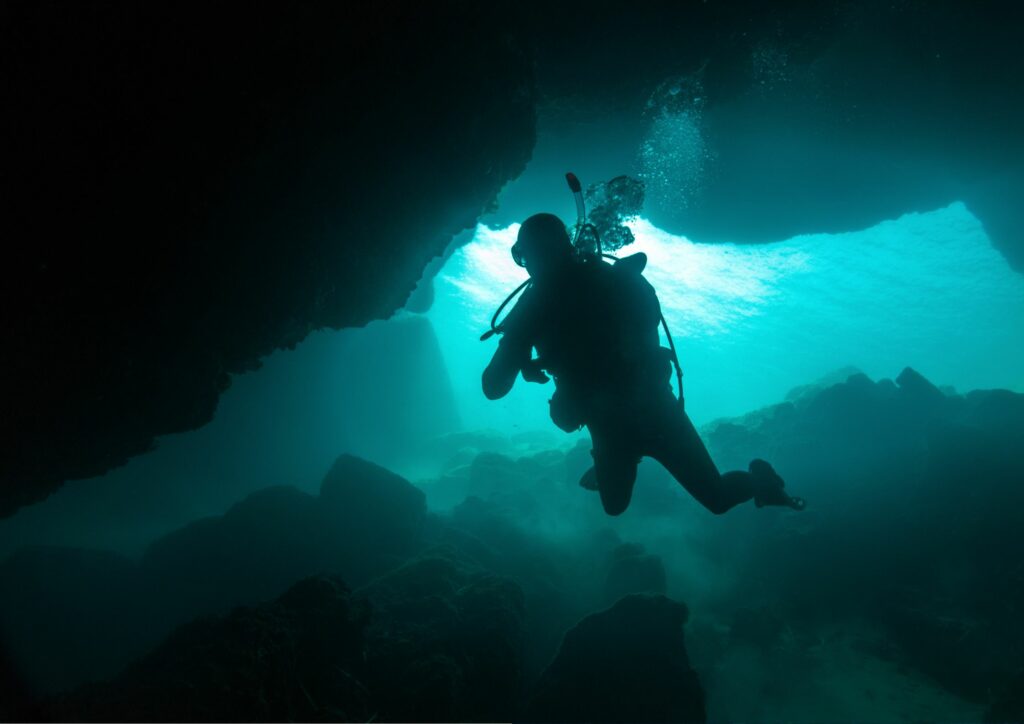Are you yearning for an unfathomable adventure? Buckle up, because we’re about to traverse the less-trodden paths of the aquatic world! Let’s move beyond your first scuba certification and take a deep dive into a Technical Diving Course. Not just a joyride, it’s a journey to enhance your diving abilities with advanced decompression techniques, deep diving strategies, mastery of dive equipment, and stringent dive safety protocols.
A Deep-Sea Quest: What’s a Technical Diving Course?

Technical Diving Course, an advanced study course specifically designed for the brave souls who are not contented simply skimming the surface, but wish to delve into the uncharted depths below. Far beyond the reach of average recreational divers, this course challenges you to explore the mysteries embedded in the heart of the ocean.
These could be profound abysses hiding communities of unique marine life, sweeping cave systems that demand extreme precision and bravery, or extended dives that test your endurance and determination. The key components of this course are elaborate dive planning techniques, learning to use complex pieces of dive equipment, and developing the strength and ability to navigate potential dive risks. Twist it, turn it, and immerse yourself into this reservoir of knowledge and skill to conquer the underwater world.
Navigating The Abyss: Dive Safety Protocols
The Backbone of any Techical Diving Course, Dive safety protocols are not just important, they are absolutely critical. The ability to switch from a routine dive to emergency measures at the flick of a switch can be life-saving. A large part of the course focuses on creating a safety bubble around you when you dive.
It honours the principle ‘Prevention is better than cure’, therefore strengthening your understanding of warding off dangerous situations, and if they still arise, how to manage them with expertise. One of the pivotal skills you will master is how to handle out-of-air situations, providing aid to a fellow diver in a distressed state, or efficiently operating emergency decompression procedures – the elements that can dramatically increase the success rate of technical dives.
Dive Deeper: Advanced Decompression & Deep Diving Techniques
Within a Technical Diving Course, it’s like being thrown into a sea of knowledge. Here, you will learn not just the basics of physiological elements to deep diving and decompression, but you will master the art. Technical dive planning, handling of decompression gases, controlling buoyancy at greater depths – this course covers it all. Freed from the shallow waters and numerous restrictions of recreational diving, advanced decompression techniques throw open the gates to stunning marine vistas and a biodiversity, most could only dream of experiencing.
Your Arsenal Awaits: Dive Equipment Mastery
Technical diving involves managing layers of complexity, and equipment configuration plays a pivotal role. You would have to navigate through elongated gear configurations, twin tanks, stage bottles, distinctive regulators, and the workings of multilevel dive computers. This might sound overwhelming, but fear not, for the Technical Diving Course undertakes the task of sharpening your skills with this broad range of equipment. As you delve deeper into the course, you will learn to not only operate them but to master them, allowing you to face the challenges of the deep.
Deeper, Further, Safer: Ascend as a Technical Diver
A Technical Diving Course is not just an advancement of your diving capabilities; it’s a transition from being merely an underwater observer to becoming an explorer- a true adventurer of the deep sea. This course invites you to master safety protocols, fine-tune advanced decompression practices, acquire deep-diving techniques and attain dive equipment mastery. It won’t be easy, but it’ll be worth it. Come, explore the untouched depths awaiting your discovery.

I’m really excited to learn more about Technical Diving Courses! It sounds like an incredible adventure, and I love the idea of exploring the depths of the ocean. Can’t wait to dive in (pun intended)!
Hi Mia, We’re thrilled to hear that you’re excited about Technical Diving Courses! It’s indeed an incredible adventure that will take your diving skills to the next level. Our course is designed to help you master advanced decompression techniques, deep diving strategies, and stringent dive safety protocols. With our expert guidance, you’ll be able to explore the depths of the ocean like never before. If you have any questions or would like to learn more about our courses, feel free to contact us at Tel: +65 6734 9373 or Email: [[email protected]](mailto:[email protected]). We’d be happy to help you take the first step towards becoming a technical diver.
I’m not sure if I’m ready for this level of diving, but I have so much respect for the technical divers out there. The idea of mastering advanced decompression techniques and deep diving strategies is really impressive. Maybe one day I’ll take the plunge (again, pun intended)!
Hi Aisha, thank you for sharing your thoughts with us! We’re thrilled to hear that you have respect for technical divers and find the idea of mastering advanced decompression techniques and deep diving strategies impressive. It’s completely normal to feel uncertain or intimidated by the level of diving involved in a Technical Diving Course, but we’re here to support you every step of the way. If you do decide to take the plunge (pun intended!), our experienced instructors will guide you through each stage of the course and help you build your skills and confidence. Don’t hesitate to reach out if you have any questions or would like more information. We’re always here to help.
As an experienced diver, I can appreciate the skills and knowledge required to become a technical diver. This course seems like an excellent way to take my diving abilities to the next level. Looking forward to hearing more about it!
Thank you for sharing your enthusiasm, Rizal! We’re thrilled to hear that our Technical Diving Course resonates with an experienced diver like yourself. Our course is designed to challenge and educate divers who are eager to take their skills to the next level. If you have any specific questions or concerns about the course, feel free to reach out to us at +65 6734 9373 or [[email protected]](mailto:[email protected]). We’d be more than happy to provide you with more information and answer any questions you may have. Looking forward to hearing back from you!